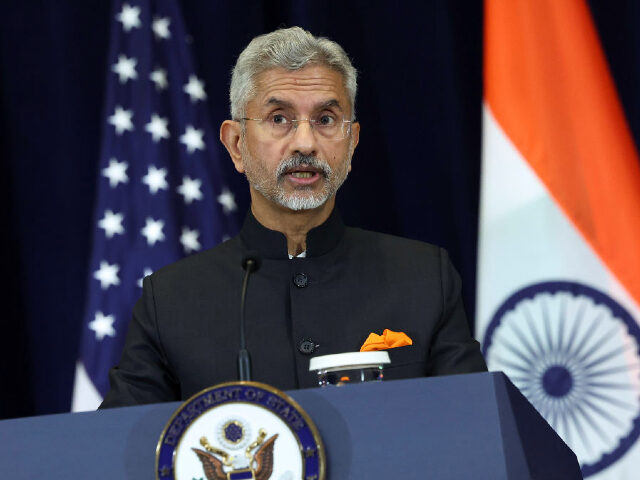Indian Foreign Minister S. Jaishankar on Tuesday defended his country’s friendly relations with Russia by reminding Western critics that Moscow was willing to supply India with arms at a time when the United States and its allies “saw a military dictatorship next to us as the preferred partner.”
Jaishankar was referring to India’s arch-rival Pakistan, which the U.S. courted as an ally in the middle decades of the past century, even as the Pakistani government was overthrown by a series of military coups.
Some Indians have especially long and bitter memories of the U.S. supporting the Pakistani dictatorship in 1971 against India’s ultimately successful effort to create an independent nation-state, Bangladesh, from eastern Pakistani territory. India characterizes Pakistan’s offensive against the ethnic Bengali residents of the region that would become Bangladesh as genocidal.
The U.S. government, under both the Trump and Biden administrations, has been especially displeased with India’s acquisition of Russian S-400 surface-to-air missiles, a $5 billion purchase that was finalized in October 2018.
Both U.S. administrations suggested India could face sanctions for taking delivery of the weapons. Indian officials disregarded these threats and accepted the missiles from Russia last month, declaring that India “intends to unwaveringly stick to its national interests.”
At a press conference with Australian Foreign Minister Penny Wong on Tuesday, Jaishankar was irritated by questions from reporters about India’s dependence on Russia for military hardware, at a time when the U.S. and Europe want heavy sanctions against Moscow for invading Ukraine.
“We have a long-standing relationship with Russia, and this relationship has served our interests well,” Jaishankar said.
“We have, as you know, a substantial inventory of Soviet and Russian-origin weapons, and that inventory actually grew for a variety of reasons – you know, the merits of the weapon systems themselves, but also because for multiple decades, Western countries did not supply weapons to India, and in fact saw a military dictatorship next to us as the preferred partner,” he grumbled.
The Indian foreign minister hinted that his government might be persuaded to re-evaluate its defense relationship with Russia, as it opposes the invasion of Ukraine, even though it has abstained from some U.S. votes to condemn the invasion.
Jaishankar said he and Wong discussed “Ukraine and its repercussions in the Indo-Pacific region,” among other subjects.
“We have been very clearly against the conflict in Ukraine. We believe it does not serve the interest of anybody, the participants, or the international community. As the country of the global south, we have been seeing first hand how much it has impacted low-income countries,” he said.
“We make judgments which are reflective of both our future interest, as well as our current situation,” he added. “My sense is in terms of this current conflict, like every military conflict, there are learnings from it, and I am sure my professional colleagues in the military would be studying it very carefully.”
On Monday, India and China were unusually critical of Russia for hitting Ukrainian cities with a string of deadly missile attacks.
“India is deeply concerned at the escalation of the conflict in Ukraine, including targeting of infrastructure and deaths of civilians,” Indian foreign ministry spokesman Arindam Bagchi said.

COMMENTS
Please let us know if you're having issues with commenting.